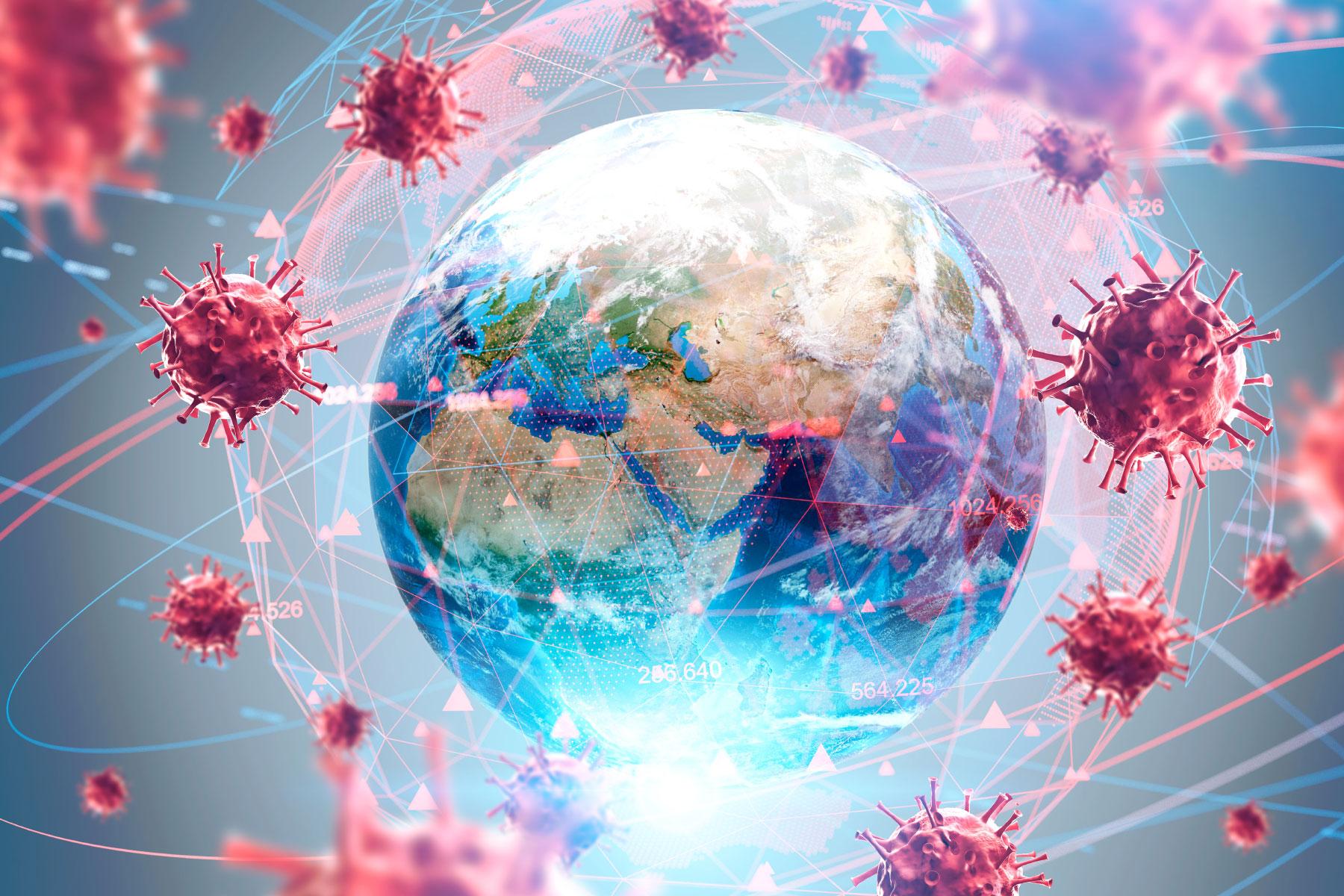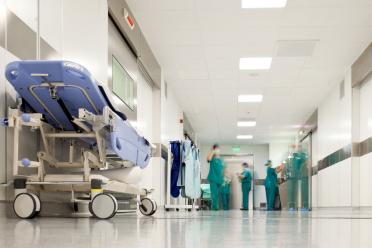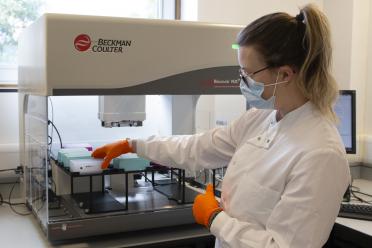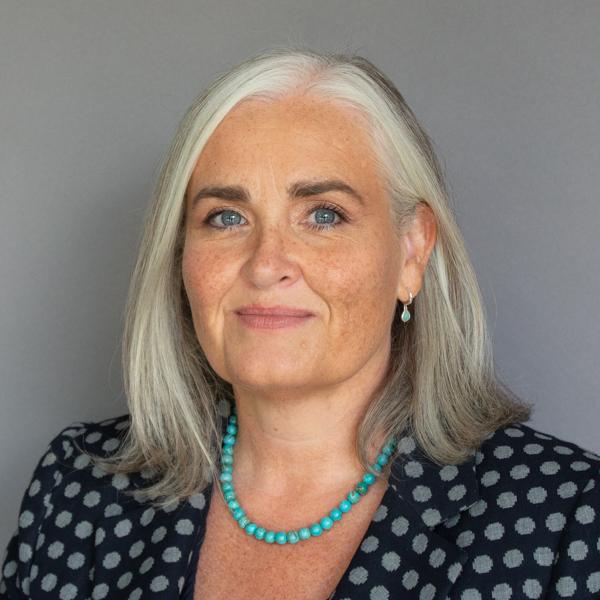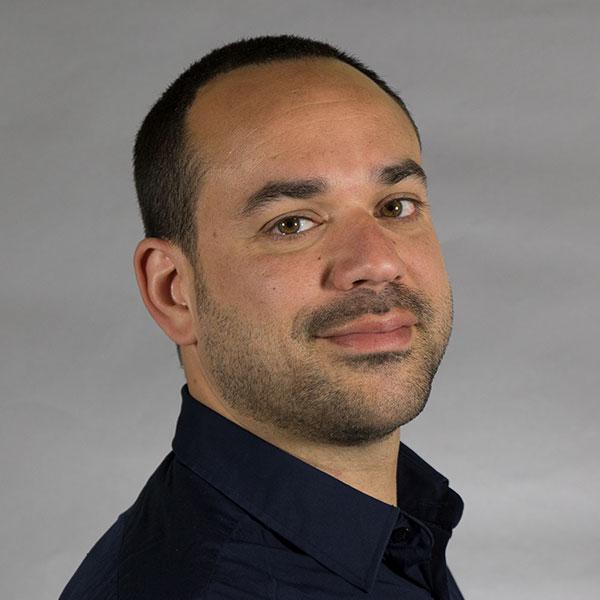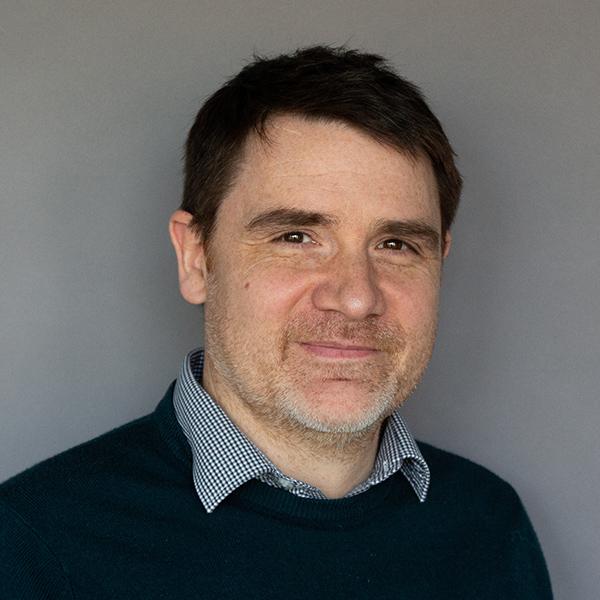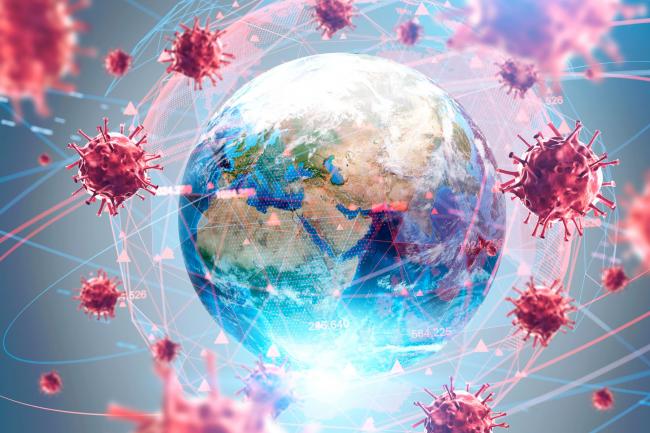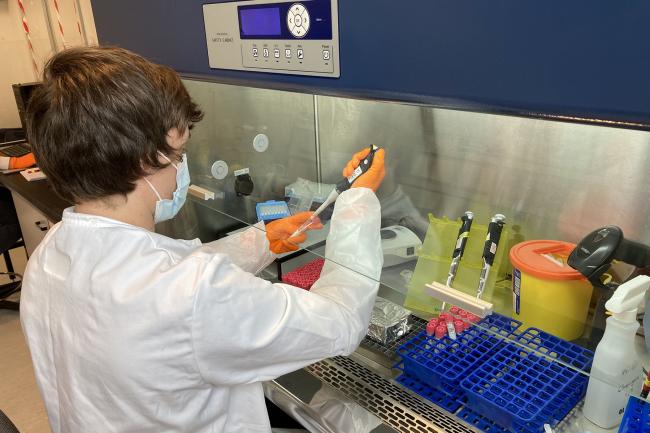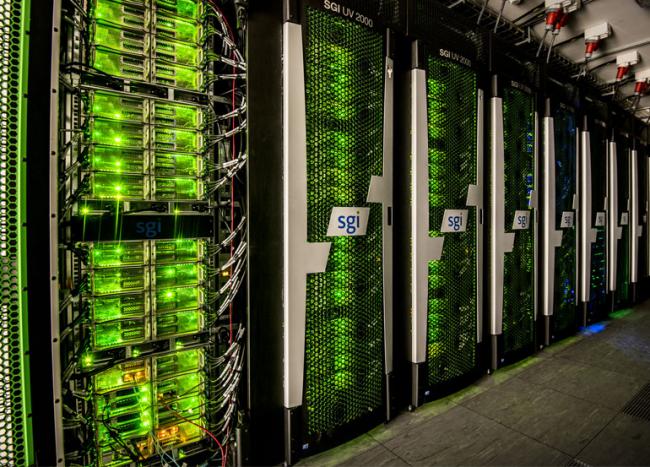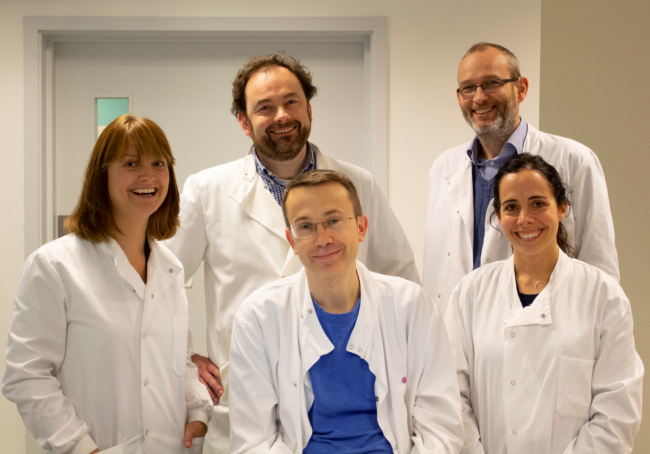At EI we are applying our skills, expertise and resources to tackle many complex challenges resulting from the current pandemic, from ramping up COVID-19 testing capacity, developing systems approaches for tracking the disease, and enabling research with our computational infrastructure, tools and resources.
Latest actions and updates in response to COVID-19
Resources and collaboration key to the Earlham Institute meeting the COVID-19 challenge

“We've now got clinicians working with researchers and university staff in a very different way than we did just a year ago. The collaboration has really grown, and it's been really lovely to see.” - Sarah Cossey, Director of Operations at Earlham Institute.
A new impact case study from UKRI's Biotechnology and Biological Sciences Research Council (BBSRC) reports on how the efficient use of existing resources and facilities, and close collaboration with Norwich Research Park Partners, were key in the Earlham Institute's response to the COVID-19 pandemic. From setting up a community testing programme to supporting the local NHS trust with testing capacity, scientists and staff at the Earlham Institute rapidly adapted to a new environment.
You can read the full Impact Report on the BBSRC website.
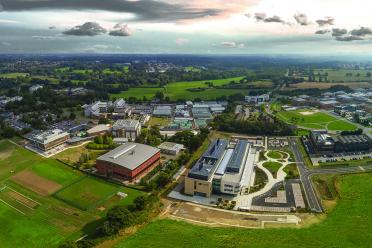
Norwich Testing Initiative
The Norwich Testing Initiative was designed as a proof-of-principle study to investigate the laboratory, data, and logistical requirements for a programme of regular COVID-19 testing in a population without symptoms.
The study carried out more than 3,000 tests from around 800 Norwich Research Park staff and students. Participants self-administered nose and throat swabs twice a week from home, dropping off samples at collection points on the Park, which were analysed in secure facilities at the Earlham Institute. Around 85% of participants returned all four samples during the pilot.
The majority of samples were processed within 24 hours, with some participants receiving a result just 9 hours after dropping their sample off. No positive samples were detected during the study. Results from the NTI were able to help to inform how coronavirus community surveillance testing might be targeted in response to localised outbreaks of the virus, as well as providing a template approach for others who might have wanted to adapt and apply this programme in their regions.
The project was conceived and delivered by the Earlham Institute, the University of East Anglia (UEA), the Norfolk and Norwich University Hospitals, the John Innes Centre, the Quadram Institute, and The Sainsbury Laboratory - all based on Norwich Research Park.
The Earlham Institute made its methodologies and programme resources freely available to provide a template for others looking to set up their own programme of testing. As well as the resource page, a paper detailing the approach taken in the Norwich Testing Initiative was published in the Journal of Public Health. The findings from Phase 2 of the Norwich Testing Initiative in partnership with the University of East Anglia are also published in the Journal of Public Health.
The Initiative was recognised in the UEA’s Impact and Innovation Awards in 2021, winning the Chancellor's Award for Outstanding Achievement.
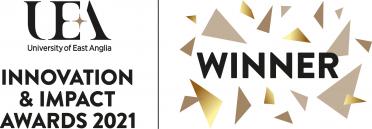
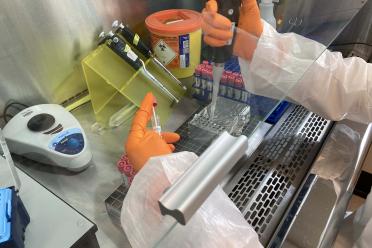
Ramping up COVID-19 testing for key workers
Director of Operations Sarah Cossey and Head of Genomics Pipelines Dr Karim Gharbi have coordinated a volunteer drive across the Norwich Research Park (NRP) to help the Norfolk and Norwich University Hospital (NNUH) increase capacity for COVID-19 testing of key workers.
Almost 200 staff from across NRP responded to the call within 48 hours and the first volunteers were deployed to NNUH within two weeks. Among the first volunteers to start working in the microbiology lab was postdoctoral scientist Dr Calum Raine, who has been processing swab samples from patients, staff and key workers to test for COVID-19 using the gold standard qPCR method. He will be joined next week by another member of EI staff, senior project manager Dr Adi Kliot.
This important collaboration between NNUH, Earlham Institute (EI), the John Innes Centre (JIC), The Sainsbury Laboratory (TSL), Quadram Institute Bioscience (QIB), the University of East Anglia (UEA), Eastern Pathology Alliance and the Cotman Centre is providing local testing for key workers, who otherwise would have had to travel to national test centres in Ipswich, Stansted or Peterborough.
People on the Government’s list of key workers can find out more about registering for a test by visiting the NNUH pages on community testing.
The Earlham Institute has also partnered with the NNUH to roll-out a programme of rapid saliva tests for NHS workers. LAMP testing (loop-mediated isothermal amplification) provides a reliable alternative to lateral flow tests, using saliva rather than a nasopharyngeal swab.. A dedicated lab within the Institute, housing both EI and NNUH scientists, will have capacity to process up to 35,000 tests per week.
Staff at the hospital are among the first in the country to benefit from the Government-commissioned programme. The tests will initially be offered to small numbers of NNUH staff before a Trust-wide rollout, with the programme continuing across Norfolk and Waveney.
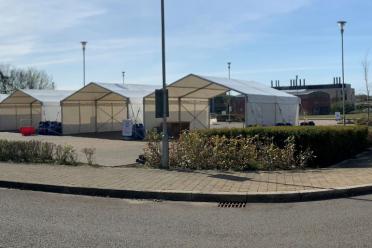
Applying expertise in automation to scale up testing
EI scientists have played an essential role in applying their expertise in automation to scale up a new testing facility in the University of East Anglia Bob Champion Building, which is a stone’s throw from NNUH.
James Lipscombe and Dr Thomas Brabbs of the Genomics Pipelines Group worked hard throughout the Easter period to develop flexible, automated protocols for RNA extraction and qPCR setup for COVID-19 testing.
Laboratory manager Geoff Plumb has ensured that robots and other essential equipment could be successfully redeployed. The expertise and services normally offered to people through our BIO Foundry are being redirected towards COVID testing.
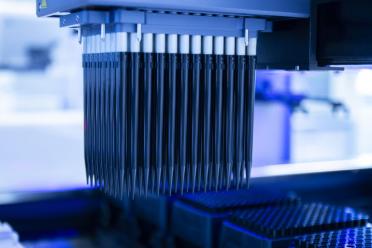
International COVID-19 Disease Map: adopting a systems approach to tackling COVID-19
Group leader at EI and QIB Dr Tamas Korcsmaros and his team are part of the international COVID-19 Disease Map collaboration that is working hard to understand the progression of a disease that is constantly surprising us.
SARS-Cov-2 virus causes severe illness in some patients, triggering what is known as a cytokine storm that sends the immune system into overdrive. Rather than being a disease of the respiratory tract, more and more evidence points to the deadly effects COVID-19 can have all over the body. Dr Korcsmaros and collaborators at Imperial College London and the University of Heidelberg are therefore applying their expertise in systems biology to help join the dots and paint a holistic picture of how COVID-19 affects the human body.
Part of this work will involve using existing bioinformatics tools that the Korcsmaros Group has developed and successfully applied to the study of Salmonella and irritable bowel disease (IBD), which rely on taking a systems-based, computational approach to understanding the networks at play in complex diseases. By using these existing tools on the disparate data sets gleaned from COVID-19 research, Dr Korcsmaros hopes to identify previously unknown connections that could point towards more successful options for treating the disease.
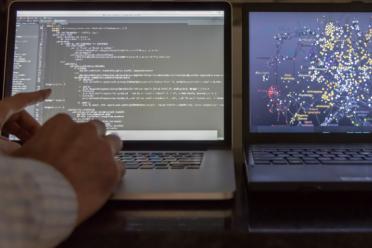
Computational tools and resources to study COVID-19
EI hosts a Galaxy Node and is the lead institute for Elixir-UK, both of which have offered services in support of research into COVID-19. Elixir, for example, has offered various computational resources, while Galaxy has provided open source analysis infrastructure and workflows in support of best practice computational research into COVID-19. Dr Nicola Soranzo of EI, who works on Galaxy, along with collaborator Björn Grüning of the University of Freiburg have added new tools to Galaxy that can be used for pan-genome analysis of SARS-CoV-2.
The National Capability in e-Infrastructure at EI also provides UK-based researchers with access to additional computational power whilst working from home. Users can request access to a virtual machine, offered through CyVerse UK, which can be set up to suit various computational requirements.
EI is also supporting UKRI's contribution to the international COVID-19 High Performance Computing Consortium, providing supercomputing capacity to help speed up the discovery of new molecules that could lead to treatment and a vaccine.

